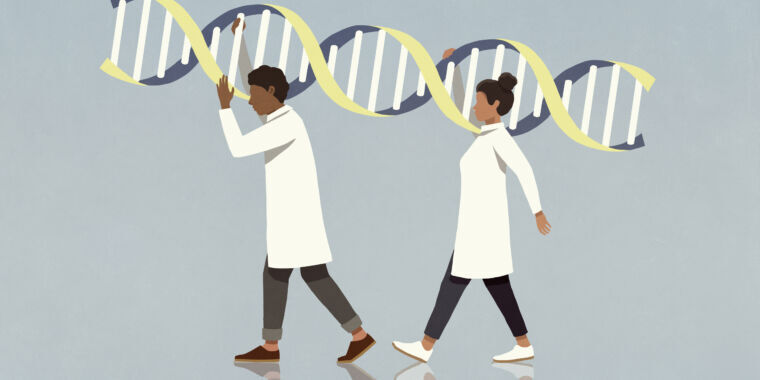- cross-posted to:
- hackernews@derp.foo
- nottheonion@lemmy.world
- cross-posted to:
- hackernews@derp.foo
- nottheonion@lemmy.world
That’s super interesting!
I’ve had my genes sequenced and linked to my anonymized medical records for study (this will be retained and maintained for up to 100 years after my death). I also did a mutation screening (checking for cancers and other stuff mostly).
So far I’ve learned I have 3 mutations that are non-harmful which were previously unidentified. I get a letter every few years with new results as they come in.
Maybe I’m also predisposed to sharing! I really just did it because it doesn’t impact me at all, but could be very helpful down the line.
This is the best summary I could come up with:
This can produce misleading or even false conclusions, and it can be hard to detect since it cannot usually be identified by examining the sample alone.
Studies examining how a particular treatment affects a particular health outcome often try to handle ascertainment bias by adjusting for “covariates,” things like education level or socioeconomic status, that could affect health outcomes independently of the treatment.
But Stefania Benonisdottir and Augustine Kong at Oxford’s Big Data Institute have just demonstrated that we can determine if genetic studies are biased using nothing but the genes of the participants.
Put differently, a bit of DNA that is common in the population will show up frequently in the study.
If a bit of DNA makes people more likely to enroll in genetic studies, it will be more common both in the overall data and among closely related family members.
So they checked the genetic sequences shared between first-degree relatives—either parents and children or siblings (but not twins)—in the UK Biobank.
The original article contains 410 words, the summary contains 164 words. Saved 60%. I’m a bot and I’m open source!




